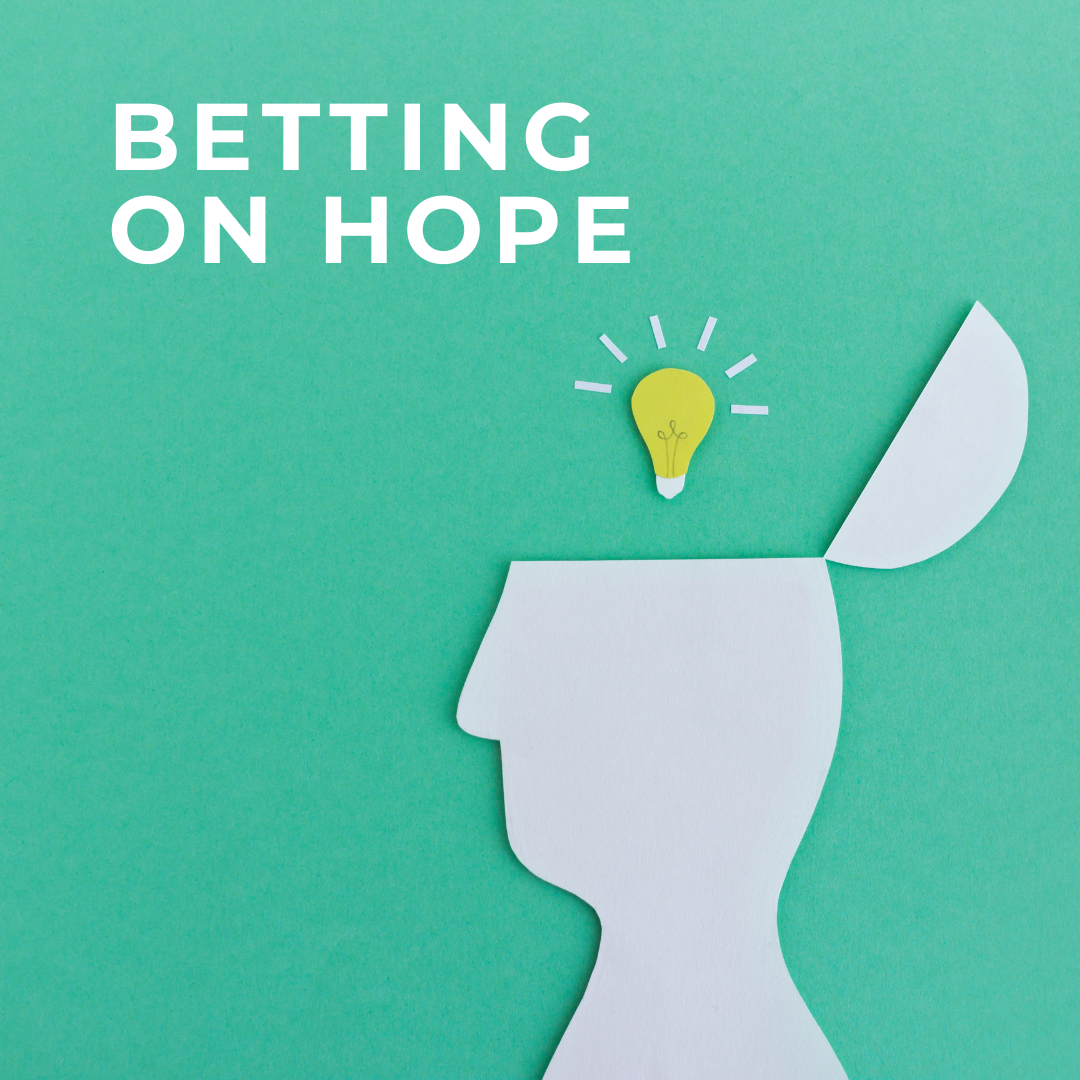
Betting on Hope
I?m not a gambler but if I were, I?d be in trouble. I?m no good at it. I know I should stay away from the blackjack table and the sports betting markets for multiple reasons, so I always do. Having said that, in many ways betting on outcomes is simply what we as human beings do all the time. It's just how our minds work. Anil Seth of Sussex University has done considerable neuroscientific research on consciousness and the brain and has collected his work and theories into a fascinating new book called, Being You: A New Science of Consciousness. In it, he provides compelling insight on the notion that the human brain is, at its core, a thing that makes bets?a marvelously complex ?prediction machine.? Our brains gather all the electrical inputs they can from all our senses and then, influenced by past experiences and our existing beliefs stored in memory, makes its best wagers on how to handle each situation in order to survive and thrive.
Though we may not often think of it this way, we?re making predictions every waking moment of our lives. For instance, if we see a box on a table, we see it only from a single angle. We may move around it to glean more information, but even as we do, our minds are extrapolating the rest of the box based on our experience with other boxes. If we?re to interact with the box?say we want to pick it up from the table?we have to make a series of additional projections about its weight, the heft needed to lift it, the contours of its edges, its fragility or durability, et cetera. Lots of predictions are made almost subconsciously in an instant. Or to take another example, say we?re trying to catch a ball. One has to make a sequence of guesses about distance, trajectory, position, velocity, spin, weight, and so much more. Or if we?re tasting a bowl of soup, we have to predict what type of force is required to lift the spoon. Our brains have to predict how hot the soup might be, then predict and calibrate the position of our mouth in relation to the spoon as it largely disappears from our field of vision. Or how about pulling out into traffic? Merging onto the interstate involves a whole casino-worth of bets and predictions.
?Imagine being a brain,? Seth said in his recent TedTalk on how our minds make sense of our experience. ?You?re locked inside a bony skull, trying to figure what's out there in the world. There are no lights inside the skull. There's no sound either. All you've got to go on are streams of electrical impulses which are only indirectly related to things in the world, whatever they may be. So perception?figuring out what's there?has to be a process of informed guesswork in which the brain combines these sensory signals with its prior expectations or beliefs about the way the world is, to form its best guess of what caused those signals. What we perceive is [the brain?s] best guess of what's out there in the world.?
Perhaps you picked up on this detail already, but Seth indicates that how we see and perceive the world is crafted not only from the signals our senses send to our brains from the outside but is also heavily influenced from the inside by our expectations and the beliefs we already hold about how the world works. For this reason, things like our faith?our belief system?matter a great deal in terms of how our minds process all the noisy and ambiguous signals we?re constantly receiving from each environment in which we find ourselves.
In this context, our faith?the scaffolding of our beliefs?could be thought of as a sort of software that runs on top of the operating system of the 8-pound prediction machine we each have secured inside our skulls. With this in mind (as it were), consider the nature of your faith. Does it paint a positive picture of the world?one with an arc that bends toward justice; one brought into existence by a loving and kind Creator full of divine grace and sacred mercy? One with a beautiful, not a tragic, ending? Neurologically, all this can and should influence the state of your mind as it incessantly and relentlessly makes predictions about the situations and people you encounter each day. More particularly, an effective ?faith software? running in the background of our minds should bend us toward optimism, install ?goodwill-for-others? as our default setting, and in the end, bias us toward making authentically hopeful predictions about the future.
God?I bet on hope.
Amen.
?Greg Funderburk





